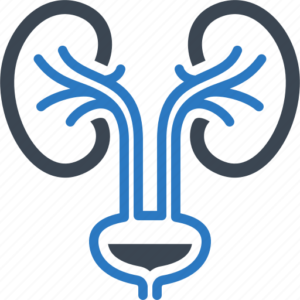How to Identify and Avoid Common Urological Problems: Practical Tips for Urinary Health
Introduction
Urological problems can affect your urinary system, including your kidneys, bladder, and urethra. Identifying the symptoms early and taking preventive measures can help you maintain good urinary health. This guide provides practical tips to recognize and avoid common urological issues.
Recognizing Symptoms of Urological Problems
Understanding the symptoms of common urological issues can help you seek timely medical attention. Symptoms may include:
- Frequent Urination: Needing to urinate more often than usual.
- Painful Urination: Experiencing pain or a burning sensation when urinating.
- Blood in Urine: Seeing blood in your urine, which may appear pink, red, or brown.
- Lower Back Pain: Experiencing pain in your lower back or side.
- Incontinence: Losing control over your bladder or experiencing leakage.
For a deeper understanding of these symptoms, visit our article Signs You Need to Visit a Urologist.
Preventing Urinary Tract Infections (UTIs)
UTIs are common, especially among women, and can cause discomfort and pain. Prevent UTIs by:
- Staying Hydrated: Drink plenty of water to help flush out bacteria.
- Wiping Properly: Always wipe from front to back to prevent bacteria from spreading.
- Urinating After Intercourse: This helps to flush out bacteria introduced during sex.
- Avoiding Irritants: Stay away from harsh soaps, douches, and feminine sprays.
For more on preventing UTIs, check out How to Maintain Urinary Health: Daily Tips and Practices.
Discover more tips to prevent UTIs here!
Avoiding Kidney Stones
Kidney stones can be painful and are often caused by a buildup of minerals in the kidneys. To prevent kidney stones:
- Stay Hydrated: Drink plenty of water to dilute substances in the urine.
- Limit Sodium: Reduce your salt intake to prevent stone formation.
- Avoid High-Oxalate Foods: Limit foods like spinach, nuts, and chocolate if you’re prone to stones.
- Eat Calcium-Rich Foods: Include dairy products to bind oxalates in your stomach and intestines.
For more dietary tips, see Diet and Lifestyle Tips for Preventing Urological Issues.
Learn how to prevent kidney stones here!
Managing Overactive Bladder (OAB)
An overactive bladder can cause frequent urges to urinate. Manage OAB by:
- Bladder Training: Practice delaying urination to train your bladder.
- Pelvic Floor Exercises: Strengthen pelvic muscles to improve bladder control.
- Avoiding Triggers: Limit caffeine, alcohol, and spicy foods that can irritate your bladder.
For more on managing bladder health, visit Urological Treatment.
Find tips to manage overactive bladder here!
Preventing Urinary Incontinence
Urinary incontinence, or loss of bladder control, can be managed and prevented by:
- Maintaining a Healthy Weight: Extra weight can put pressure on your bladder.
- Avoiding Bladder Irritants: Limit foods and drinks that irritate the bladder.
- Practicing Pelvic Exercises: Strengthen the muscles that support the bladder.
Explore more about managing incontinence in Urological Surgeries and Procedures.
Learn how to prevent urinary incontinence here!
Preventing Prostatitis
Prostatitis, or inflammation of the prostate, can be prevented by:
- Staying Hydrated: Drinking plenty of water to keep the urinary system flushed.
- Practicing Safe Sex: Use protection to prevent infections that can lead to prostatitis.
- Avoiding Long Periods of Sitting: Take breaks to avoid pressure on the prostate.
For more information, check out Latest Advances in Urological Treatments: What You Need to Know.
Avoiding Bladder Cancer Risks
Reduce your risk of bladder cancer by:
- Quitting Smoking: Smoking is a major risk factor for bladder cancer.
- Avoiding Chemical Exposure: Use safety precautions when handling chemicals.
- Staying Hydrated: Drink plenty of water to help flush out harmful substances.
Read more about reducing cancer risks in How to Maintain Urinary Health: Daily Tips and Practices.
Managing Enlarged Prostate (BPH)
Benign prostatic hyperplasia (BPH) can cause urinary issues. Manage BPH by:
- Avoiding Decongestants: These can worsen symptoms of BPH.
- Limiting Caffeine and Alcohol: These can irritate the bladder and increase symptoms.
- Maintaining a Healthy Diet: Eat a balanced diet rich in vegetables and whole grains.
For advanced treatment options, see Latest Advances in Urological Treatments: What You Need to Know.
Preventing Testicular Problems
To maintain testicular health:
- Perform Regular Self-Exams: Check for lumps or changes in size.
- Wear Protective Gear: Use proper protection during sports to prevent injuries.
- Seek Medical Advice: See a doctor if you notice any changes or experience pain.
Visit our guide How to Prepare for Your Visit to a Urologist for more on testicular health.
Maintaining Good Hygiene
Good hygiene is crucial for preventing infections:
- Clean Regularly: Wash the genital area daily with mild soap and water.
- Wear Breathable Clothing: Choose loose, cotton underwear to prevent moisture buildup.
- Wipe Properly: Wipe from front to back to avoid spreading bacteria.
For more hygiene tips, see How to Maintain Urinary Health: Daily Tips and Practices.
Get essential hygiene tips for urinary health here!
Conclusion
By recognizing symptoms and adopting preventive practices, you can avoid many common urological problems and maintain good urinary health. If you experience any symptoms or have concerns, consult a healthcare professional. For more information or to discuss your specific needs, visit our Urology Doctor in Lucknow.
